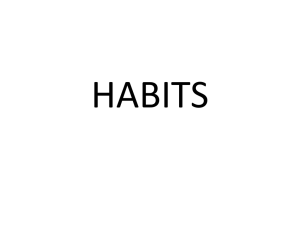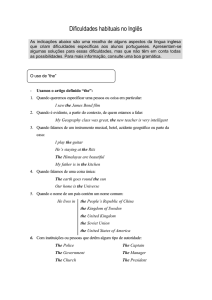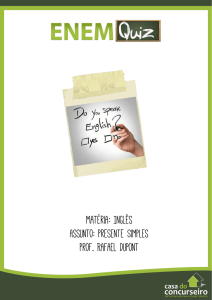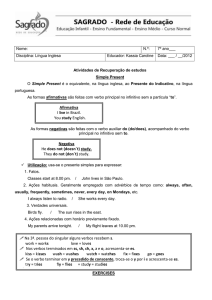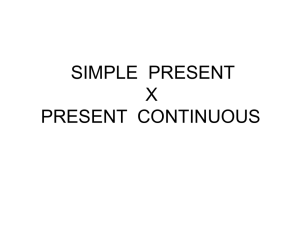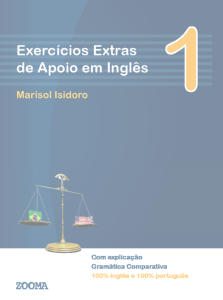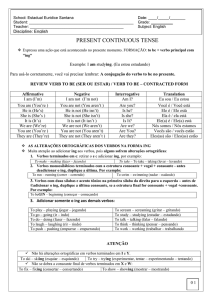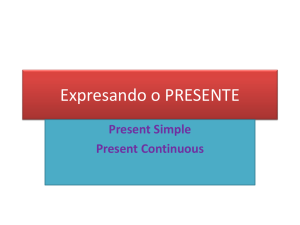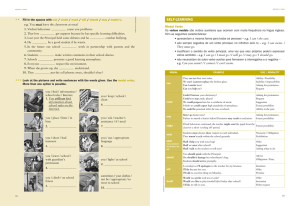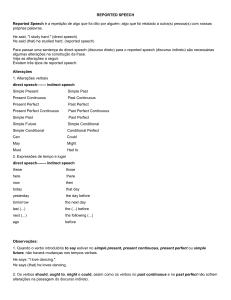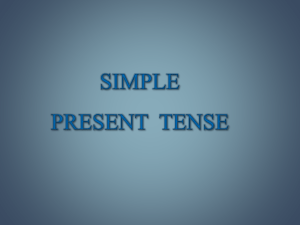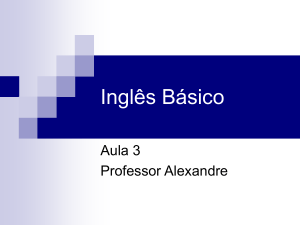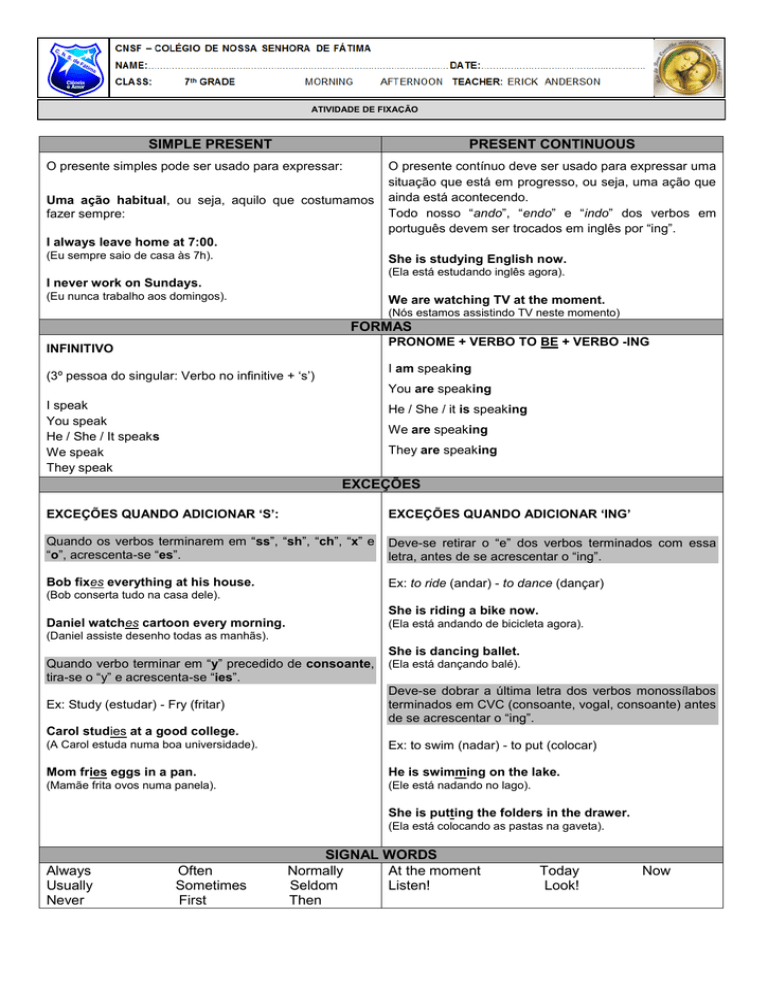
ATIVIDADE DE FIXAÇÃO
SIMPLE PRESENT
PRESENT CONTINUOUS
O presente simples pode ser usado para expressar:
Uma ação habitual, ou seja, aquilo que costumamos
fazer sempre:
O presente contínuo deve ser usado para expressar uma
situação que está em progresso, ou seja, uma ação que
ainda está acontecendo.
Todo nosso “ando”, “endo” e “indo” dos verbos em
português devem ser trocados em inglês por “ing”.
I always leave home at 7:00.
(Eu sempre saio de casa às 7h).
She is studying English now.
(Ela está estudando inglês agora).
I never work on Sundays.
(Eu nunca trabalho aos domingos).
We are watching TV at the moment.
(Nós estamos assistindo TV neste momento)
FORMAS
PRONOME + VERBO TO BE + VERBO -ING
INFINITIVO
I am speaking
(3º pessoa do singular: Verbo no infinitive + „s‟)
You are speaking
I speak
You speak
He / She / It speaks
We speak
They speak
He / She / it is speaking
We are speaking
They are speaking
EXCEÇÕES
EXCEÇÕES QUANDO ADICIONAR ‘S’:
EXCEÇÕES QUANDO ADICIONAR ‘ING’
Quando os verbos terminarem em “ss”, “sh”, “ch”, “x” e
“o”, acrescenta-se “es”.
Deve-se retirar o “e” dos verbos terminados com essa
letra, antes de se acrescentar o “ing”.
Bob fixes everything at his house.
Ex: to ride (andar) - to dance (dançar)
(Bob conserta tudo na casa dele).
She is riding a bike now.
Daniel watches cartoon every morning.
(Ela está andando de bicicleta agora).
(Daniel assiste desenho todas as manhãs).
Quando verbo terminar em “y” precedido de consoante,
tira-se o “y” e acrescenta-se “ies”.
Ex: Study (estudar) - Fry (fritar)
She is dancing ballet.
(Ela está dançando balé).
Deve-se dobrar a última letra dos verbos monossílabos
terminados em CVC (consoante, vogal, consoante) antes
de se acrescentar o “ing”.
Carol studies at a good college.
(A Carol estuda numa boa universidade).
Ex: to swim (nadar) - to put (colocar)
Mom fries eggs in a pan.
He is swimming on the lake.
(Mamãe frita ovos numa panela).
(Ele está nadando no lago).
She is putting the folders in the drawer.
(Ela está colocando as pastas na gaveta).
Always
Usually
Never
Often
Sometimes
First
SIGNAL WORDS
Normally
At the moment
Seldom
Listen!
Then
Today
Look!
Now
LET’S PRACTICE
Complete the sentences below with the Simple Present Tense or the Present Continuous
Tense of the verbs in parentheses:
a) Jane ______________________ to learn how to swim every day. (to try)
b) They often ______________________ in the club on weekends. (to dance)
c) She ______________________ her mother every day. (to kiss)
d) The children ______________________________ in the park now. (to play)
e) At this moment I ______________________________apples to make a pie. (to cut)
f) I always ______________________ newspaper at the corner. (to buy)
g) The boy ______________________ the bus to school at 10 o‟clock every day. (to catch)
h) We ______________________________ for school now. (to leave)
i) Ted and I __________________________________ in the park at present. (to run)
j) We never ______________________ dinner after 8 o‟clock in the evening. (to have)
k) My friend ____________________________ in London now. (to live)
l) She usually ______________________ her hair before going to sleep. (to brush)
m) Karen and I frequently ______________________ our homework together. (to do)
n) Linda _________________________________ now. (to study)
o) We often ______________________ out of town. (to go)
p) Terry seldom ______________________ her tennis lesson. (to enjoy)
q) The girls _________________________________ now. (to swim)
r) Mr. Taylor ______________________ his shop at 8 o‟clock every day. (to open)

